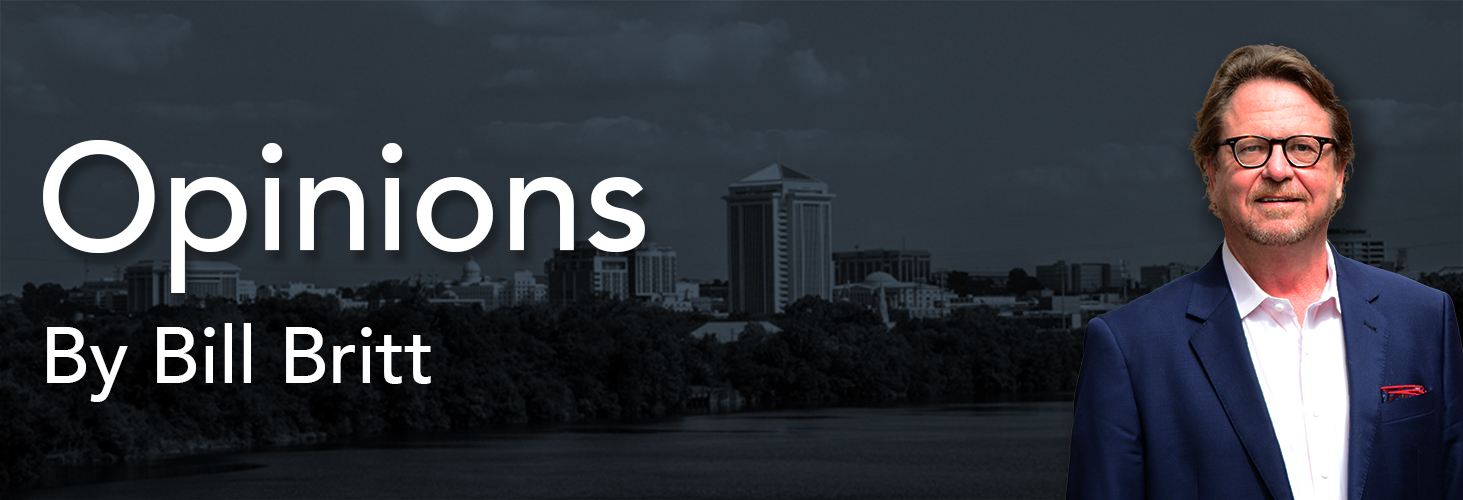By Bill Britt
Alabama Political Reporter
MONTGOMERY—”Were it left to me to decide whether we should have a government without newspapers, or newspapers without a government, I should not hesitate a moment to prefer the latter,” so said Thomas Jefferson.
However, once Jefferson became the subject of criticism by the press he did not retain his benevolence.
This is true of all politicians, by degrees. As long as the media paints them in a positive light they love the press but the second we become critical or simply point out a flaw, we are dogs, fabricators of lies and worse.
Of course, we in the media get use to it because it goes with the territory.
It is never personal with me, it is my job, that’s what I do, report the news.
We are never more maligned than when we report on things that the government doesn’t want disclosed. Private meeting, secret deals, back room shenanigans, they don’t happen anymore right, we have transparency.
Government transparency is about as real as the hooker with a heart of gold.
Most of the time government actions only become transparent when someone leaks a story or blows a whistle.
Investigative reporting is more often the result of leaks and whistleblowers.
From the statehouse to the outhouse, politicians hate leaks, but leaks are the grease of a free press.
Then again there is always blowback from leaks, heaven forbid that there is a leak in an administration, then a full blown hunt is underway to find the leak and castigate the leaker.
The press is assailed, denied access and maligned in a myriad of ways.
But all administrations have leaks, that is because there are always people who disagree with policies or simply do not think that the real facts should be hidden from the public. Many times leaks come from those who want to cause problems for a particular politicians or who feel they have been wrong and wants payback. Whatever the case, inside information, off the record comments are a part of what keeps government honest.
If there is nothing to hide, why be so upset. But politicians are a special breed of cat, at once fierce and also thin skinned.
If a politico says one thing to the public and another in private that is news. Why, because honesty is foundational block of good government.
But some are masters of deception, especially deceiving themselves.
Telling themselves it is okay, because the public just would not understand.
Naturally, there are political types, who are crusaders, they are the white knights fighting all that is wrong with the world. These are the ones that send endless emails complaining about the press biases.
It is always slanted if it does not agree with their position.
Of course telling both sides of a story is also unpopular with some readers. If a story doesn’t comport to their view of the world then the story is wrong.
This is why there are now news organizations that appeal to only one constituency. These echo chambers are reporting the news with a point of view, and people can dial into whatever their preconceived notion of the facts happen to be.
This is one of the reason people have information but lack knowledge.
Fair and balanced means, little more than, it agrees with my thinking.
In other words, one man’s fair and balanced is another man’s propaganda.
This is no where more true than the blogosphere, where there are sites that only give the news from the left or the right.
Most are not even news, they are snarky opinions, rumors or worst sites that are bought and paid for by political operatives to promote their agenda.
Whether, it is a conservative Pravda or a liberal one, they are propaganda tools use to deceive, not inform.
This is not new, the still-functioning “New York Post” was founded by Alexander Hamilton, to espouse his views of the infant republic and to destroy those who didn’t agree.
The press is often referred to as the “Fourth Estate.” Novelist Jeffrey Archer, in his work, the Fourth Estate observered: “In May 1789, Louis XVI summoned to Versailles a full meeting of the ‘Estate General.’ The First Estate consisted of three hundred clergy. The Second Estate, three hundred nobles. The Third Estate, six hundred commoners. Some years later, after the French Revolution, Edmund Burke, looking up at the Press Gallery of the House of Commons, said, ‘Yonder sits the Fourth Estate, and they are more important than them all.’” As the Fourth Estate we should be advocates as well as defenders. We should, at our best, provide accurate, unbiased information to frame the issues in a way that allows citizens to make good decisions. We should hold those in power accountable and to expose the rats and cockroaches that infect all corners of public life. It is naïve to think that all or any public man or woman has clean hands, by omission or commission there is dirt. The great failing of journalists is to think that we are the heroes of the story. The truth is we should never be in the story, not our ego, ambition, desire or political ideology. We are mechanics who should work in earnest to make clear information that shields against tyranny and promotes liberty.
We are commonly attacked for doing our jobs, but without the fourth estate, there will be no one to police the state.
A government unchecked by honest reporters will become an absolute power, enslaving it citizens to enrich itself.





















































